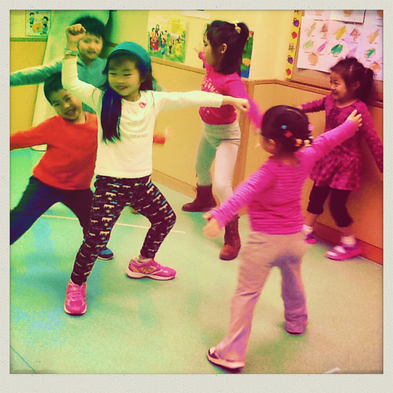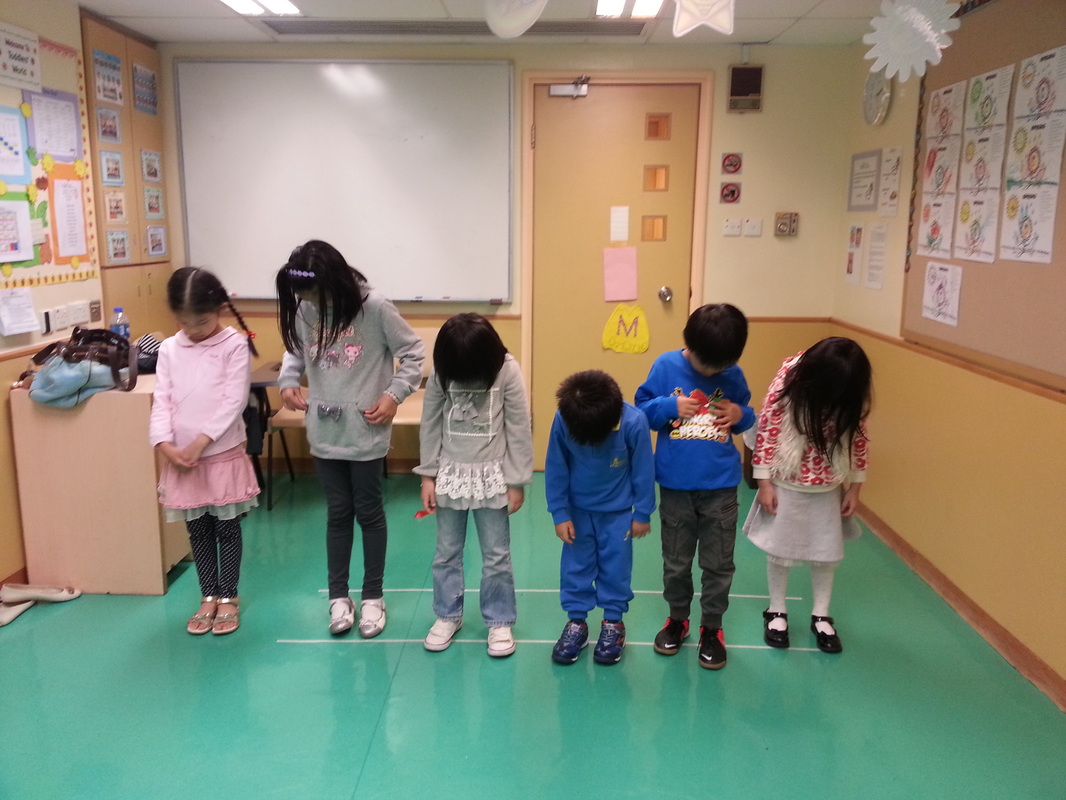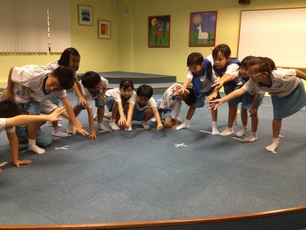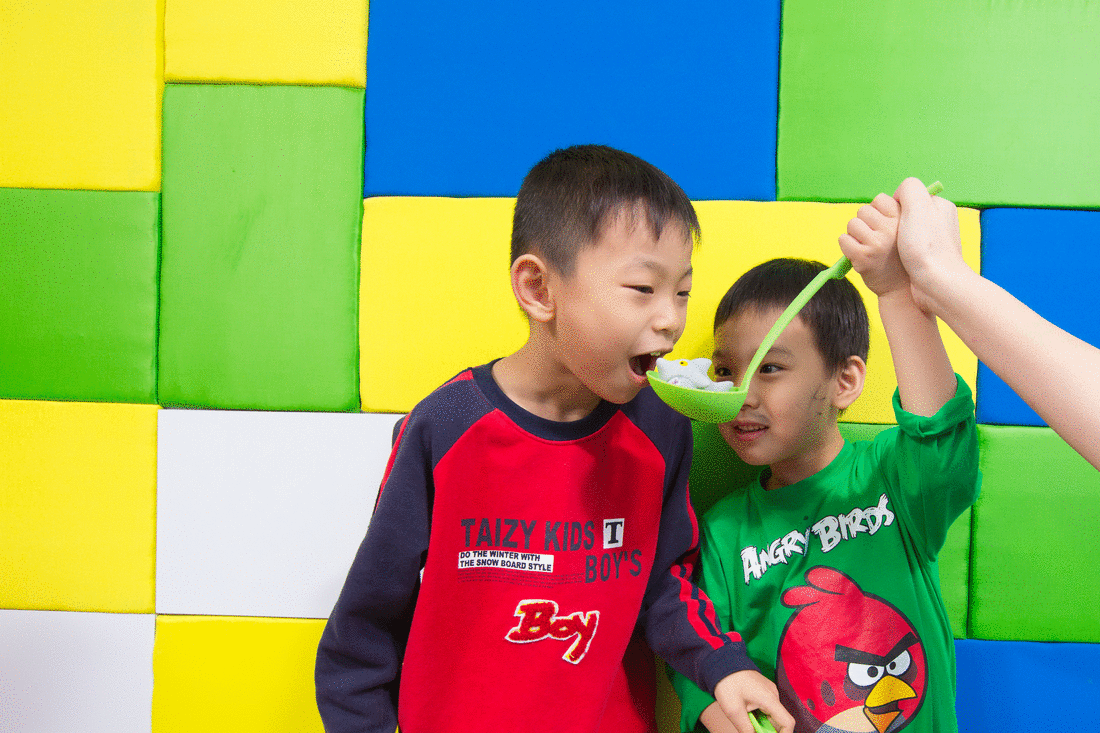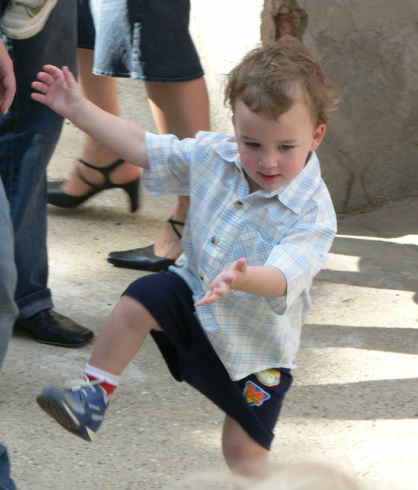Helen O'Grady Drama Academy's dynamic development programme has been built over the years by teachers, psychologists and parents to ensure that the lessons are structured to bring out the best of any child.
They say that 'a lesson learned through fun is never forgotten' and this certainly seems to be the aim of the game as the children are taken through a myriad of games and exercises; they are great fun for the children, but an observing mind will instantly recognise that a lot of thought goes on behind the various activities.
They say that 'a lesson learned through fun is never forgotten' and this certainly seems to be the aim of the game as the children are taken through a myriad of games and exercises; they are great fun for the children, but an observing mind will instantly recognise that a lot of thought goes on behind the various activities.
SpeechOur classes are given in English. One of the most important benefits is that the children are learning to use English in a fun, stress-free environment. Just like any language skill, pronunciation takes practice.
The children warm up with fun vocal exercises. These exercises are the speaker's warm-up equivalent. They prepare and train the children to speak with ease. Then they are asked to recite simple, yet carefully thought-out lines and poems that stress certain consonants or vowels. We teach the importance of intonation, rhythm, and stress to being understood by native speakers. Watch the video here! |
Improvisation
This is the highlight of our lesson!
A different play is put up each and every week. This ensures that every child gets their chance to shine and eliminates the pressure of studying lines and the tedium of waiting around that is required when rehearsing for one show. Often the plays themselves deal with subjects that are important to the children of various ages, for instance, bullying or peer issues. We explore a range of different themes and introduce children to different real and imaginary situations each week. Improvisation In Class
|
This gives our children opportunities to express themselves in a variety of real-life situations. This very quickly teaches young people how to deal with conflict and learn to resolve issues.
Improvisation drama encourages the development of creativity as children lead the direction of the drama themselves, come up with solutions to problems while role-playing and respond imaginatively to a range of pretend situations. By encouraging children to 'act out' a range of emotions in the safe and supportive environment our classes, they are better able to understand their emotions and develop empathy with others. It also teaches children how to react and be focused and present in the moment at a very high level. As well as teaching children to react and adapt, improvisation can teach creativity, innovation, communication, teamwork and leadership. |
Snippet Sample
|
Snippets
Snippets are a form of dialogue development in which students work in pairs to develop a short piece of sequenced drama relating to a specific idea. Snippets are great fun and allow the students to explore their own creative ideas!
They don’t have to be limited to a Helen O'Grady Drama class, try one at home. Your opening lines are on the left in orange. How will this story go? Will the food be delicious or questionable? Perhaps there is a cockroach in that ladle! Or could it be poison? *cue dramatic music* It's all up to you! |
Mime To Music & Movement
Mime To Music is a special segment in our classes. We act out an amazing story, without using our voices, with just music and tonnes of movement and expression. Most children just love it!
Why do we place such an importance on music and movement in a drama class? Children learn so much through music. When children participate in music and movement, many areas of the brain are activated. |
Music impacts children's development: knowledge, skills, attitudes and values. Children naturally connect music with body movement.
Good coordination begins with the awareness of the movement of their body and their potential for creativity will increase. |
The Helen O'Grady Drama Academy is not a talent school and is not in the business of turning children into performing artistes. It is a very unique development programme designed to improve children's English language skills, ease them out of their shells in a fun-filled environment, while tapping into children's inherent imagination.
Studies carried out by Matt Buchanan of Harvard University show that drama reinforces the rest of the school curriculum. Since communication and empathy are central to drama, a student will be better able to understand and discuss problems. One marked area of improvement noted by parents of children attending the Helen O'Grady Academy was in spoken English, as the children are taken out of the blackboard and classroom environment and work on the language itself.
There are no end-of-term examinations; children have enough academic pressure as it is. There are no large-scale productions at the end of the year because the jam-packed curriculum does not allow for long hours of rehearsals for one show.
We promise, through our programme, to give your child increased confidence and skills in verbal communication. However, success does not come overnight. For anything permanent to be achieved, regular attendance for a minimum of 2 years is recommended.
Studies carried out by Matt Buchanan of Harvard University show that drama reinforces the rest of the school curriculum. Since communication and empathy are central to drama, a student will be better able to understand and discuss problems. One marked area of improvement noted by parents of children attending the Helen O'Grady Academy was in spoken English, as the children are taken out of the blackboard and classroom environment and work on the language itself.
There are no end-of-term examinations; children have enough academic pressure as it is. There are no large-scale productions at the end of the year because the jam-packed curriculum does not allow for long hours of rehearsals for one show.
We promise, through our programme, to give your child increased confidence and skills in verbal communication. However, success does not come overnight. For anything permanent to be achieved, regular attendance for a minimum of 2 years is recommended.
